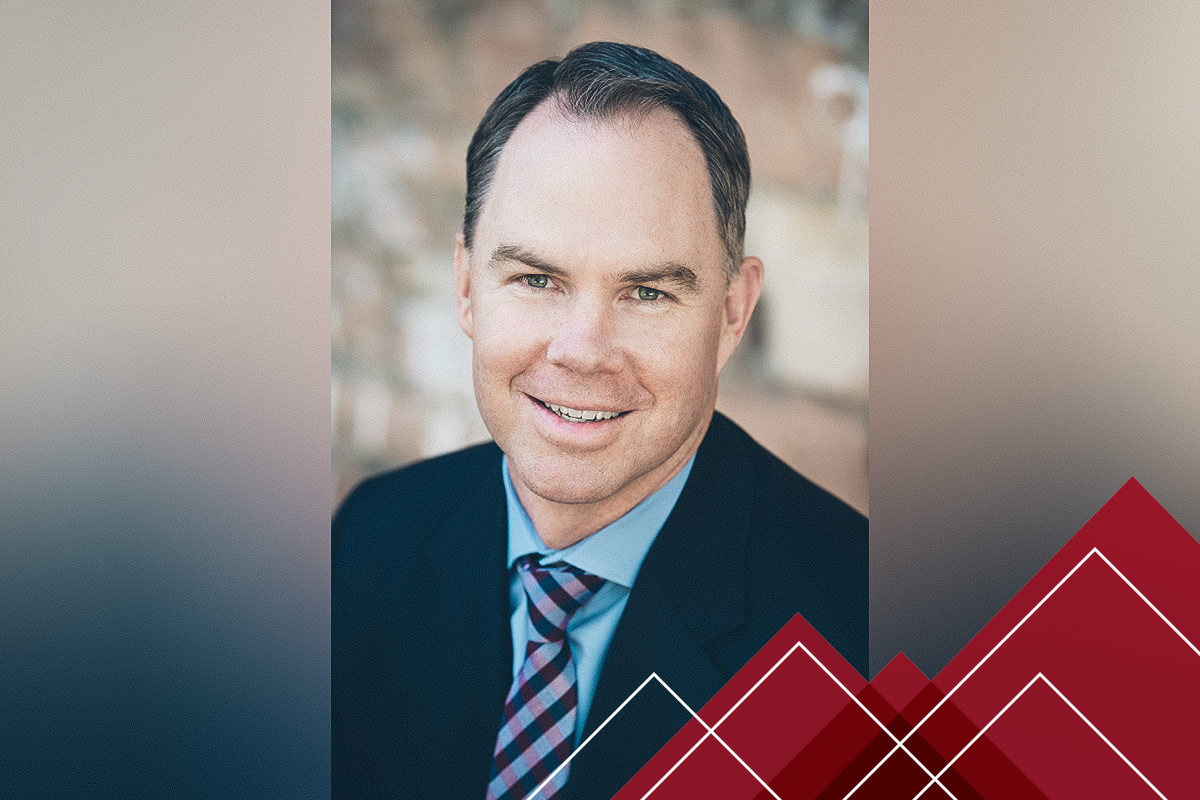
Keep Your Investments on Track by Making the Right Money Moves
We're working on something new for you—it's our Guiding You Forward podcast! You'll find interviews with knowledgeable experts, real-world financial advice and practical money management tips and resources. Our latest episode dives into investments and talks through:
- The pandemic’s impact on the stock market.
- How to manage your money as you age.
- Strategies to move through an uncertain economy.
Successfully managing finances can feel stressful on a normal day, let alone in a year that’s had so many challenges. We’re all concerned with the state of the economy. And trying to figure out what’s best for our savings and investments through the turbulence can lead to sleepless nights.
What’s the best way to protect my investments?
You’ve probably had discussions over the last several months about how COVID-19 has affected the stock market and other investments. Chances are you’ve probably heard every viewpoint under the sun, too. While there isn’t one right answer when it comes to protecting your money, Chad Waddoups, vice president of wealth management and business services, has some best practice tipsto help you weather the storm.
Should I take my money out of the stock market?
When the market takes a tumble, our instinct is to act quickly and pull our money out to preserve what is left. However, depending on your short-term needs, this may not be the right choice.
If you truly need that money to pay your monthly expenses because you’ve been furloughed or laid off, then it may make sense for you to cash out of the stock market. Providing for yourself and your family is job number one. However, if you don’t need to cover immediate needs, it may be better to take the emotion out of the decision and let it ride.
Historically, the stock market has seen cycles of gains and losses—but it has always recovered. Over the last one hundred years or so, the stock market has returned an average of nearly 10%.* As we think rationally about what will happen with our investments, they are probably more likely to go up than continue going down for too long.
Of course, every situation is different, but most people will benefit from leaving their money in the stock market during uncertain times.
What are some good overall investment strategies that can help me through this time?
Now that some of the COVID-19 restrictions have lifted, many people are venturing out more—possibly getting back to work and feeling more comfortable with the money coming in. What are the best next steps?
-
Have a good plan. If you have a solid investment plan in place, keep it in place. If you don’t have one, now’s the time to consult an investment professional and get started.
-
Get into the stock market if you can. If you have money in your budget to invest, now may be the best time to do it. Investing during a volatile market can help you get more for your money since you’re likely to buy at lower prices.
-
Build up your emergency fund. Whether you’re replenishing what you used or starting from scratch, this strategy could be the reason your finances survive the next unexpected hiccup.
-
Check with your financial institution for additional options. If you still need help getting back on track, options like skip-a-pay or a deferred payment may help. Or, now that interest rates have gone down, think about refinancing your mortgage, auto loan or student loan.
How much do I need in my emergency fund?
There’s not really a “gold standard,” but the goal is to have as much as you can without having too much. Emergency funds should be kept in a very safe account—like a traditional savings account—that can be accessed quickly and easily.
Mountain America recommends keeping anywhere from three to six months’ worth of expenses in this account. The good news? You don’t have to save this all at once. Set a goal to save what you can per week or per month. Even if it’s only $50, you’ll eventually build it up to where you need it—giving you financial security through any unexpected event. It’s all about creating the habit of saving for greater peace of mind.
Based on my age, should I be doing different things to grow my finances?
Yes, the above strategies are good for anyone at any time. And, as you work to grow your retirement, your goals will probably shift based on how close you are to retirement.
-
25–45 years old—When you’re just starting out, maybe starting a family, the most important financial steps center around building a strong foundation—open savings accounts, get a good life insurance policy and start contributing to a retirement fund (even if it’s just $10 per paycheck).
-
45–65 years old—This is when you’ll want to focus on building your wealth for the future. During times of volatility, you may want to make small changes to protect what you have. Do this by diversifying your investments, increasing your retirement fund contributions and structuring your investments to support your long-term goals. Check in with a financial advisor annually.
-
Over 65 years old—At this stage, it’s critical to make sure your finances are in order, especially in uncertain times. Review your plan often, meet with a financial advisor and adjust your income plan if necessary. Your priorities should be to keep a low-risk investment strategy.
Knowing how to set appropriate goals—and how to update or change them during the course of your life—is vital to a successful financial plan. Make sure you prioritize your financial goals and revisit your plan often to make adjustments where necessary.
How do I emotionally and psychologically deal with financial loss?
Money is a very emotional thing—it’s directly tied to accomplishing many of our biggest dreams and goals. So, when a financial loss occurs, it can sometimes leave you feeling deeply depressed or anxious.
It’s probably fair to say that, because of the emotion that money provokes, many people have responded with strong actions. Sometimes these knee-jerk reactions can result in bad financial decisions. Robert Steed, the financial education manager at Mountain America, has some tips to help you refocus and stay on track after a financial loss.
- Breathe—The emotional part of our brain reacts much faster than the rational part, so give yourself time to weigh the pros and cons before you take action.
- Refocus and align with your values—Connect your behavior back to what is most meaningful to you. When you are creating your budget or long-term financial plan, keep in mind the goals that matter most to you—family, security, adventure, etc. Once you’ve defined your overarching values, the necessary actions and goals will fall into place.
- Involve others in your decision making—It can be stressful to be the one who has to make all the financial decisions. To keep anxiety from creeping in and eroding your sound intellectual framework, enlist the help of someone who can hold you accountable—someone who is not as emotionally attached to your money. Try meeting with a financial professional.
As we’ve stated before, there isn’t one set of rules that works for everyone’s financial situation. But these strategies can help you grow your savings throughout your lifetime—weathering the storms along the way.
*Investopedia
Related Articles

How to Rebuild Your Budget Post-Pandemic

